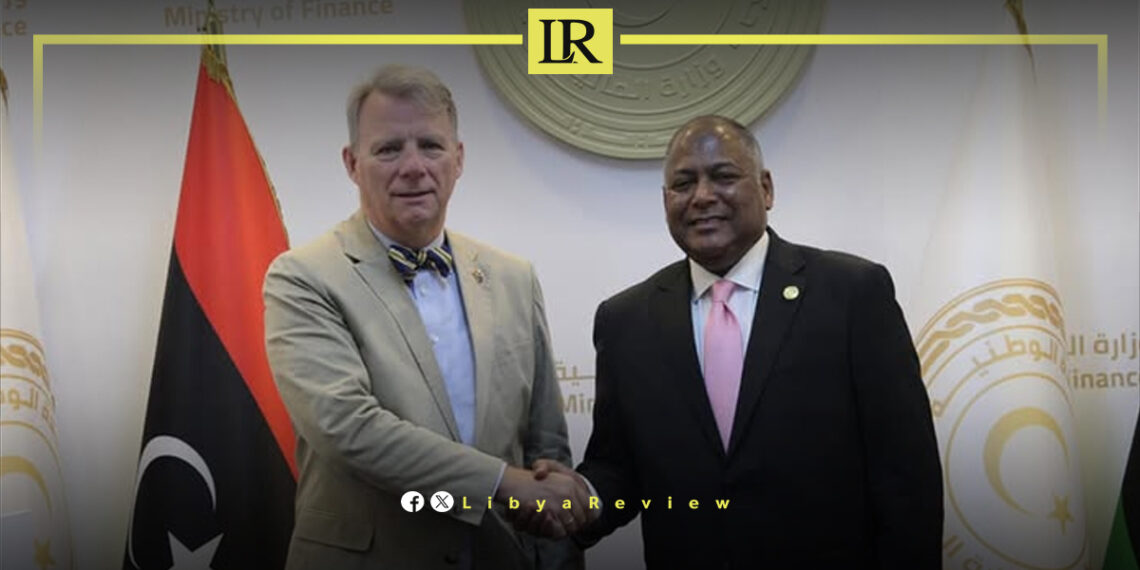On Monday, Libyan Finance Minister, Khaled Al-Mabrouk met with the Acting Ambassador of Germany to Libya, Sven Krauspe at 10 a.m. The meeting focused on exploring prominent areas of joint cooperation and ways to develop them further.
The Minister emphasized the importance of strengthening these collaborative efforts, especially in the field of capacity building for the staff of the Ministry of Finance through the German International Cooperation Agency (GIZ).
The discussions also covered assistance in implementing the mechanization program and improving operations at the ministry, alongside the public financial reform program that the ministry aims to enact with international support.
Moreover, the meeting addressed significant topics including finalizing procedures to sign a treaty to prevent double taxation and assisting the Libyan Tax Authority in implementing a value-added tax (VAT) system and supporting its enforcement procedures.
Additionally, both parties discussed various other cooperation aspects to enable joint efforts, particularly in training, combating money laundering, countering terrorism financing, and encouraging German companies to resume operations in Libya, which would contribute to sustainable development goals.
Libya has been in chaos since a NATO-backed uprising toppled longtime leader Muammar Gaddafi in 2011. The county has for years been split between rival administrations.
Libya’s economy, heavily reliant on oil, has suffered due to the ongoing conflict. The instability has led to fluctuations in oil production and prices, impacting the global oil market and Libya’s economy.
The conflict has led to a significant humanitarian crisis in Libya, with thousands of people killed, and many more displaced. Migrants and refugees using Libya as a transit point to Europe have also faced dire conditions.
The planned elections for December 2021 were delayed due to disagreements over election laws and the eligibility of certain candidates. This delay has raised concerns about the feasibility of a peaceful political transition.
Despite the ceasefire, security remains a significant concern with sporadic fighting and the presence of mercenaries and foreign fighters. The unification of the military and the removal of foreign forces are crucial challenges.


